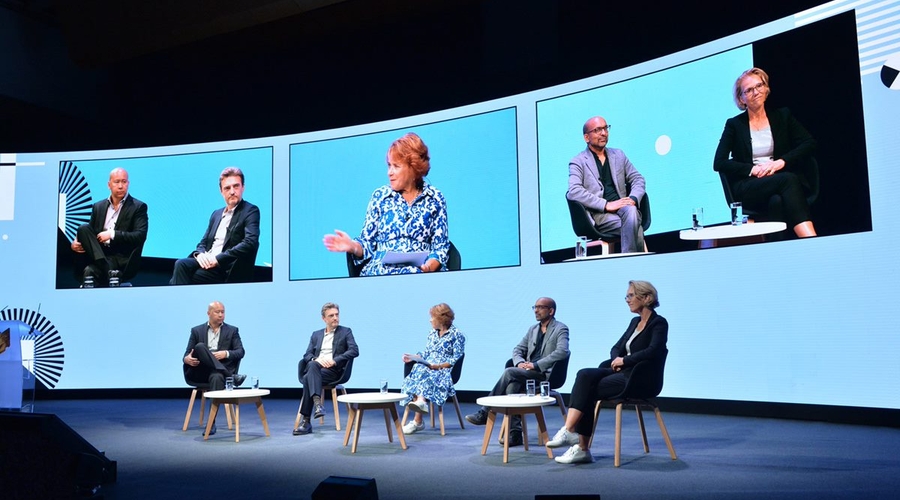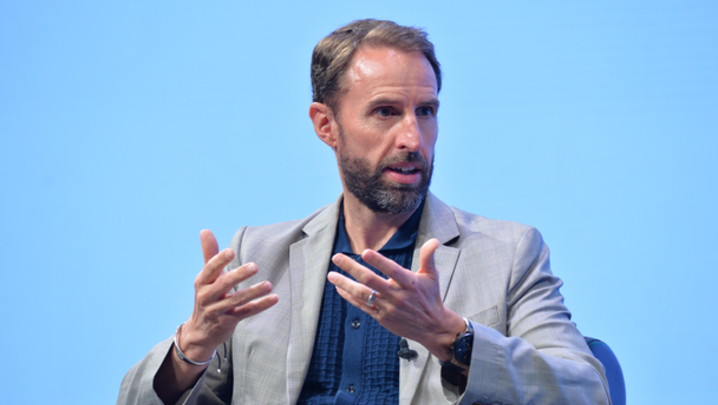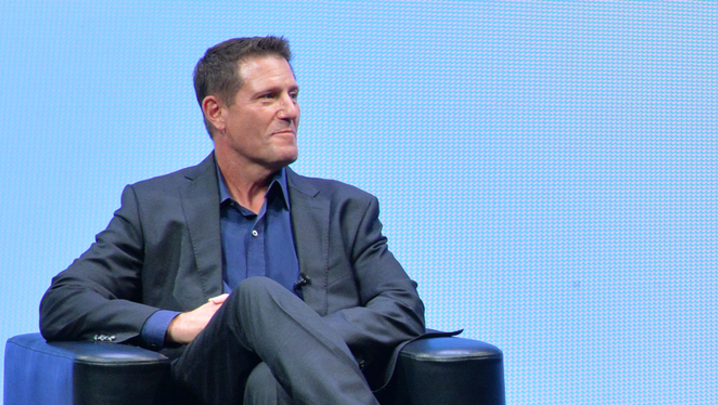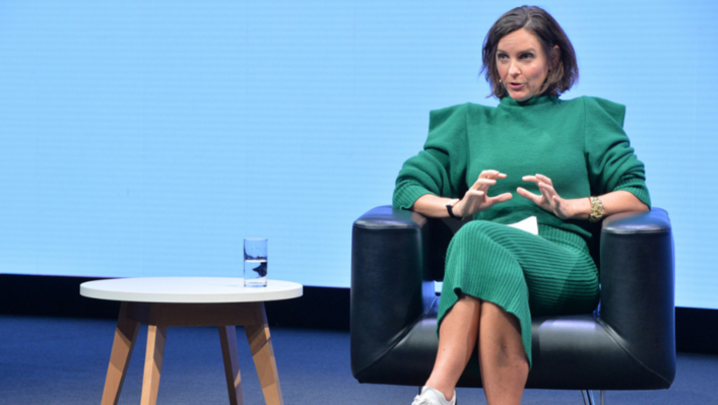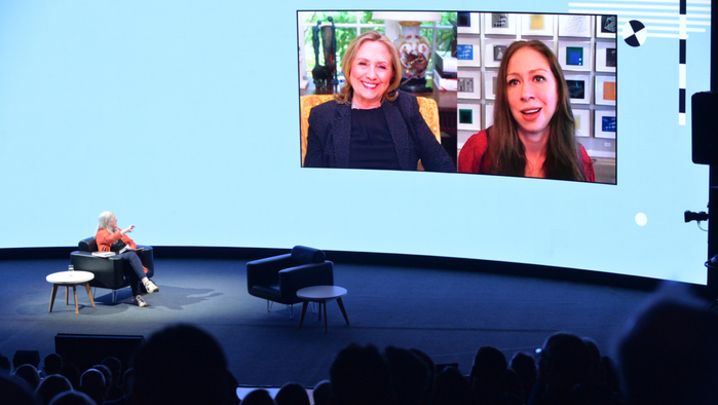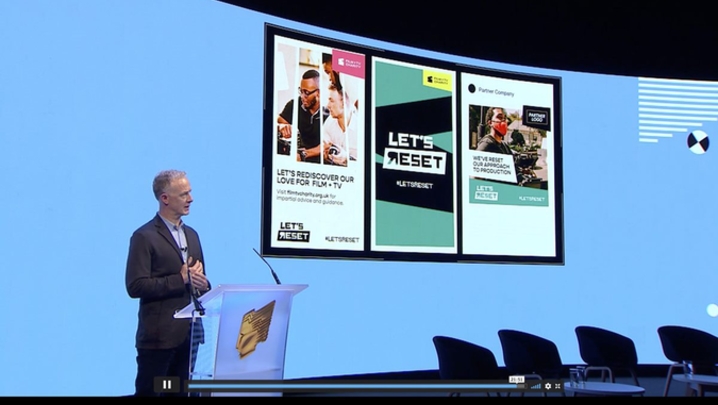The post-Covid boom is fuelled by the streamers but beset by inflation and labour shortages.
Demand was “greater than ever” but “there is a skills shortage”, costs were rising by at least 10% per year and there had been no increase in tariffs, was All3Media CEO Jane Turton’s sober assessment of the state of TV production in the UK.
The big question for BBC Studios CEO of production Ralph Lee was whether the rising costs and wage bills were a long-term inflationary trend or a short-term effect of the pandemic and of “still [being] in the middle of trying to get the shows delivered”.
Lee reported that BBC Studios had made seven dramas this year but some projects could not get off the ground as “there just weren’t the skills” available; one of the delayed productions was a six-part comedy for BBC Wales.
Voltage TV co-founder Sanjay Singhal revealed that the thirst for talent meant some directors were now asking for a “per-episode” fee, which he had never experienced before in the UK. “Demand is outstripping supply and that’s creating the inflationary pressure… people are more risk averse, so they want proven talent in order to make these shows. What I’ve suddenly started seeing is rates going up.”
Singhal added that contributors to documentaries, even minor ones, now wanted “some of the back end…. They argue that it’s going to end up on SVoDs, and they want some of it.”
Nodding towards fellow panellist Brandon Riegg, from Netflix, Singhal said in jest: “More money coming into the system is a good thing but, in the short term, it creates a gap and our job is to try and fill the gap… and take as much money as possible from Brandon and his colleagues and try to find ways to fill the gaps they’re creating.”
Riegg acknowledged that there was “a gap in terms of the talent pool… and the availability versus the demand”. He said it was “incumbent” on Netflix and the public service broadcasters to train more people. He noted that Netflix was supporting the Unscripted TV Skills Fund and, in the streamer’s Grow Creative UK initiative, “to invest continuously in the UK”.
The Netflix VP said “the ultimate goal” should be “to have a larger pool of talent”, which “pays it back into the ecosystem”.
Lee reminded the audience that “we should welcome this work” from the streamers, and applauded Disney, Amazon, Apple and Netflix for bringing their ambition to the UK: “If they’d taken everything to Canada, we’d be having a conference about how we get them to come and invest here.”
Singhal said this “land grab” was more of an issue for broadcasters than indies, “putting questions on PSBs”. He added that, if he were a PSB commissioner, he would ask what else his broadcaster could offer producers to compete with streamers; if he couldn’t match the budgets, was it “speed of response” that became his USP?
“That’d be nice!” exclaimed session chair Lorraine Heggessey.
Singhal continued. “You can’t spend 10 months developing an idea for one of the terrestrial channels then have them say no.”
Riegg replied: “We really don’t believe our commissioning is competing with the public service broadcasters; I think it’s complementary. A lot of what we do is not necessarily things that the public service broadcasters would commission themselves.”
It currently felt “truly a golden age of television, and the beneficiaries are viewers and the producers out here”. Netflix had upped its production here because of the country’s long tradition of “innovation and creativity”, he said. “We’ve done a lot of co-productions with public service broadcasters.”
Heggessey asked what was special that “you get from the UK that you don’t get anywhere else”. Riegg said the UK offered “a much longer history of making this type of programming… so the innovation we’ve seen has been more pronounced here”. He gave Too Hot to Handle and Sunderland ’Til I Die as examples, and said UK producers brought a “care and thoughtfulness” to storytelling, with innovation and creativity “front and centre”.
“It’s not just that we’re cheap?” asked Heggessey. “No… the size of a budget doesn’t dictate how successful or popular a show is. We try not to overpay.… We have certain shows, from a scale perspective, we want… to be big, global swings, and we pay appropriately. Then we have shows that are less costly that we’re equally fond of,” explained Riegg.
Heggessey wondered if the larger budgets and full funding that streamers offered in exchange for rights were worth it.
Turton explained: “This is not new… it’s a pre-terms-of-trade thing. The British market used to look like that, it then became a cable thing… and actually now it’s an SVoD thing where, typically, Brandon and his peer group will pretty much take an assignment of all rights….
“[It’s] slightly different in unscripted formats… but in scripted… anything that travels as a tape you tend to say goodbye to the tape as you deliver it to the SVoD platform.”
Turton said the answer was obvious – producers wanted a portfolio of deals: “We sit there going… ‘We like a Channel 4 deal, we like a BBC One commission, BBC Two, ITV, whatever, deal’ because we can retain the rights. But, in return, they tend not to fully fund and, by the way, the terms of trade cut both ways.
“We don’t have to take the deal. We’ve got to be a bit grown-up about this and accept there are different models out there and [that] it’s complex – complexity is a good thing if you’re competent.”
Although Netflix’s investment in bricks and mortar studios suggested that it was in the UK for the long haul, would it go elsewhere if the sector did not get “skilled up” quickly, Heggessey asked Riegg. He assured her that his team did “not make decisions dictated by geography”, but went to where the best ideas were.
He added that some of the company’s productions were “delaying until the director, producer or crew is available… there’s too much talent out here and too many great ideas coming on a consistent basis from the UK community [for us to] abandon you.”
Turton concluded that although margins were being squeezed and “we’ve got proper Covid costs…, we are strong and will get through”.
She rallied the audience by saying the industry had to work together more to get through the skills shortage: “We’ve tended to be a bit disparate since the demise of the big ITV and BBC training days; now is the time to get our heads around that.”
Session Eighteen: ‘Production’s coming home?’. The session was chaired by Lorraine Heggessey, Chair of the Grierson Trust and external advisor to the Channel 4 Growth Fund, and featured: Ralph Lee, CEO, production, BBC Studios; Brandon Riegg, VP, unscripted and documentary series, Netflix; Sanjay Singhal, CEO, Voltage TV; and Jane Turton, CEO, All3Media. It was produced by Michael Hedley. Report by Tara Conlan.

